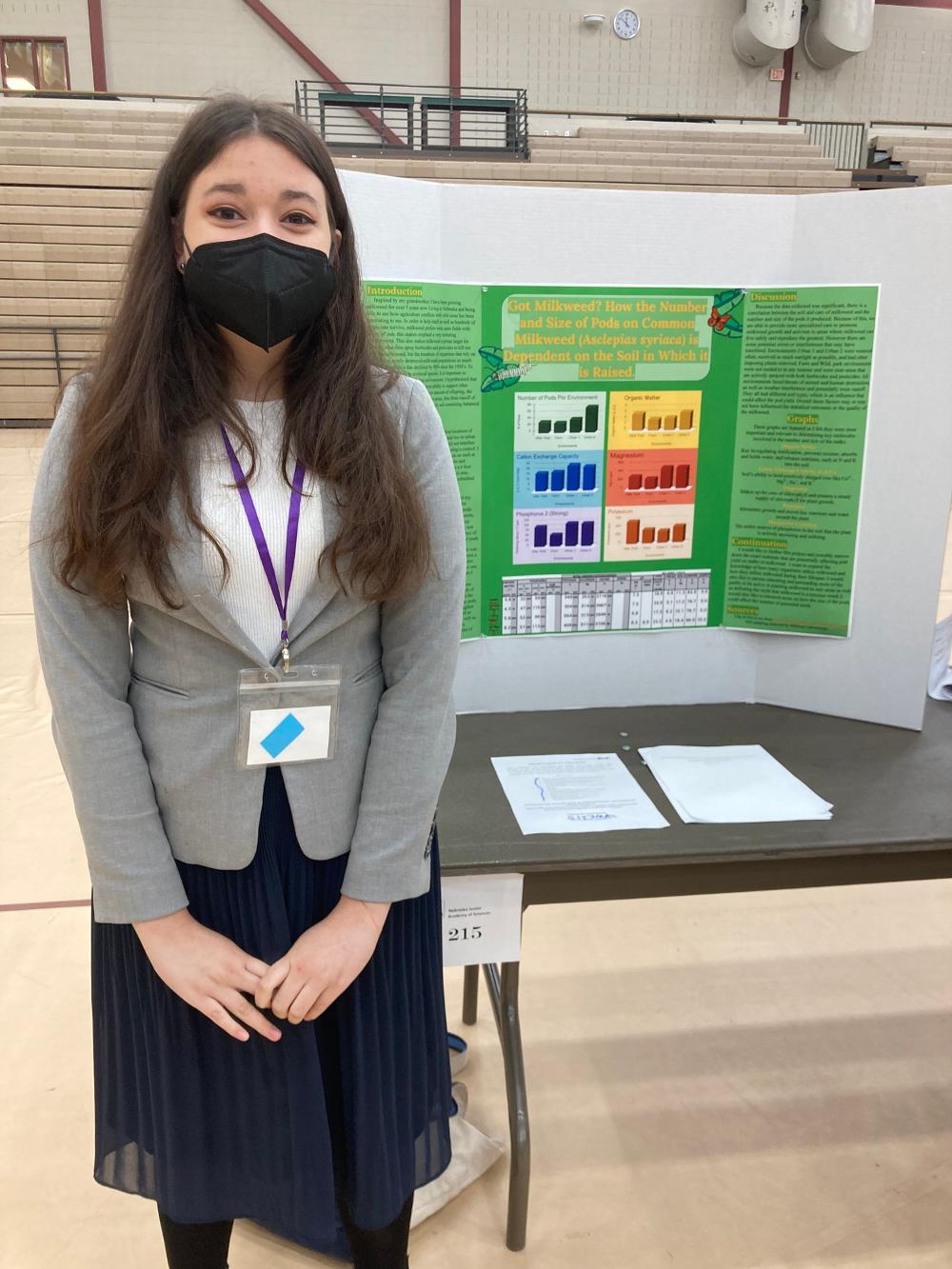Milkweed research lands Science Focus Program student in national competition
May 4, 2022

Milkweed provides a nurturing home for monarch caterpillars, however, Lindsay Howe notes the plant is essential for many other pollinators – as well as representing a broader, ecological picture. “Nature is declining significantly, so we won’t be here much longer if we don’t do something. There’s not a lot of time left, so we need to observe, preserve … find better solutions for our environment.”
Howe, a junior at the Lincoln Public Schools Science Focus Program, took top honors this spring for her research about milkweed, presenting at the Nebraska Junior Academy of Sciences Fair held at the University of Nebraska-Lincoln. Judges found her research both scientifically relevant and well conducted. In fact, Howe was the only student from LPS selected to continue to Junior Academy national-level competition set for next year in Washington, D.C.
And it all started with her grandmother.
“She introduced me to milkweed five years ago, so this was important to our family and it has become important to me … She gave me some pods to start.”
And as Howe watched the milkweed grow, she noticed the difference in size and number of pods varying from plant to plant – and varying from urban to rural. “Compared to milkweed in Lincoln, the pods in rural areas seemed to be smaller, not thriving.”
So, she set up a research project with milkweed growing in four different environments – two urban and two rural – and subsequently took soil samples, measured size, counted pods and noted yield.
“There’s an ever-expanding amount of knowledge about the world out there, and I love investigating problems,” said Howe, also a student at Lincoln Christian High School.
Mark James, Howe's science teacher at the Focus Program, explained that each junior in his class is asked to choose a topic to research for one semester – a topic related to the larger community that has an ecological focus. “I ask my students: ‘If you could do whatever you want to do at school, if you could learn whatever you want to – what would you choose?’”
Students must discover how to research a topic, collect data, understand proper technique, James said. “I provide guidance, but I don’t babysit them. They have a lot of freedom and head off in all different directions.”
James said this semester his students are researching 12 very different projects, including decomposition of rats, animal populations at a nearby prairie refuge – and, of course, milkweed.
“I did conclude that milkweed was healthier in urban areas,” Howe said. “I have not concluded why, but my research continues.”
Her sights set on becoming a wildlife biologist someday, Howe said she loves the independence and opportunities at the Science Focus Program: “I was looking for a challenge, and this school is so open-minded about teaching and learning.”
James has taught at the Science Focus Program for 15 years now and appreciates what he calls the emotional payback for doing something meaningful: “I teach in a place where students have already decided about the value of science. They have chosen to be here.”
He recalls a former student whose family was going on vacation during the very same week of the annual science competition. The student decided to stay home.
“When students see the value in their research and are willing to miss their own family vacation, because they are so proud of what they did – yes, that’s what teaching is all about.”
Published: May 4, 2022, Updated: May 4, 2022

“Nature is declining significantly, so we won’t be here much longer if we don’t do something. There’s not a lot of time left, so we need to observe, preserve … find better solutions for our environment.”
Lindsay Howe, Science Focus Program junior
